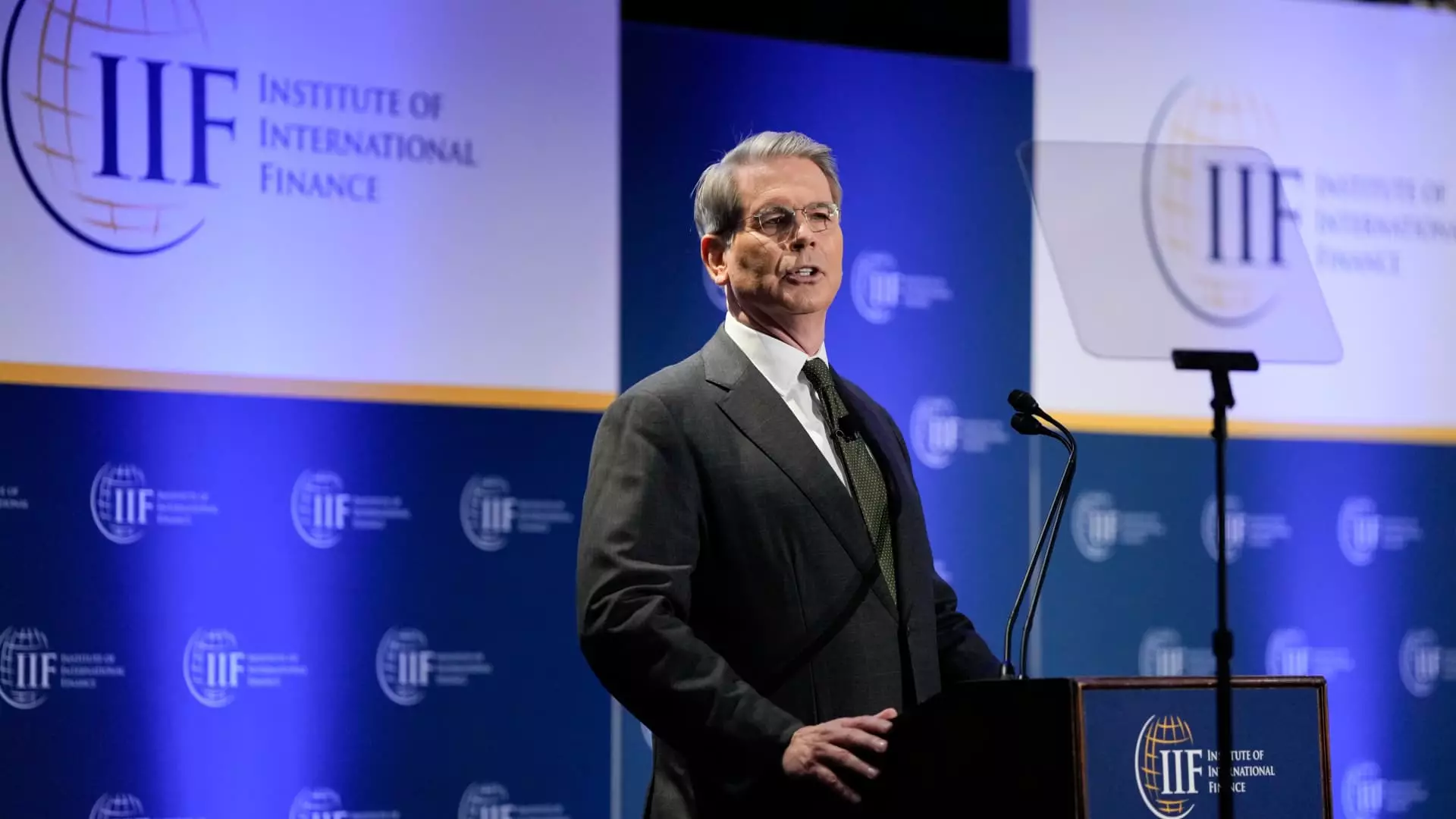In a world entwined with complexities of international commerce, the ongoing trade saga between the United States and China serves as a glaring illustration of how trade imbalances can dictate global stability. Recently, Treasury Secretary Scott Bessent suggested that there lies “an incredible opportunity” for a significant restructuring of these two colossal economies. However, buried within this optimistic outlook are urgent questions about fairness, accountability, and economic sustainability. In reality, the stakes are much higher than an ethereal hope for collaboration; we are on the precipice of redefining a global economic order that has already been sorely tested.
The Reality of Tariffs and Their Consequences
Bessent emphasized this notion during his discourse at the Institute of International Trade and Finance in Washington, D.C. He has been vocal about the harmful impacts that decisions made by “other countries” have had on American manufacturing and supply chains. To many, this is simply a reiteration of familiar talking points. With President Trump imposing tariffs reaching an eye-watering 145%, the administration has engaged in a predominantly combative approach that ostensibly aims to protect American workers. However, these tariffs may serve to exacerbate existing tensions rather than produce a constructive resolution. Any forthcoming reductions to 50% and 65% in tariffs, although a step back from extreme levels, still represent an iron fist approach rather than nuanced diplomacy—keeping the U.S. on a precarious economic tightrope.
Redefining Economic Institutions: A Necessary Reform
Bessent’s proposal to recalibrate institutions like the International Monetary Fund (IMF) and the World Bank suggests a critical reflection on their evolving roles. He argues that these institutions have been sidelined by “mission creep,” thereby losing sight of their original goals. Indeed, there is merit in questioning whether the continued financial support given to nations like China serves broader global interests. Treating China as a developing nation when it is the second-largest economy is both illogical and counterproductive. This oversight reflects a fundamental flaw in the global financing structure, calling for an urgent re-evaluation of practices that reinforce outdated dependencies.
By issuing loans to countries that have long outgrown their reliance on such assistance, these institutions inadvertently stymie true economic independence and growth. Moreover, Bessent correctly identifies the adverse implications of this financial tethering on private sector initiatives. If nations are continually propped up by institutional funding instead of fostering their own sustainable economic growth, we will witness a stagnation of innovation and entrepreneurship, the very engines that propel developed and emerging economies alike.
The Myth of a Synchronized Economy
Bessent seems to strike a chord when he criticizes international policy choices that threaten American economic health. His acknowledgment that we cannot sustain persistent trade imbalances rings true, yet it is imperative to interrogate the myth of global reciprocity. The interdependent web of international economics can often mislead policymakers into believing that solutions can be achieved through isolationist practices such as tariffs and trade wars. The expansive interconnectedness of economies means that unilateral decisions lead to a cascade of repercussions that affect all global participants.
As the administration continues to pursue a strategy based on confrontation rather than collaboration, it risks alienating potential allies and multifaceted avenues for growth. The idea of rebalancing trade should encompass inclusive dialogues that seek equitable solutions rather than doubling down on divisive tactics that paint economic cooperation as a zero-sum game.
Toward a New Economic Front
Ultimately, the call extends beyond mere tariff adjustments and redefinitions of global financial institutions. The opportunity for change lies in fostering holistic, attainable dialogues driven by a commitment to shared prosperity. “Beautiful rebalancing,” as Bessent quotes the renowned investor Ray Dalio, could encompass a broader paradigm shift—one that prioritizes transparency, innovation, and adaptability in a rapidly changing economic landscape.
Yet, this paradigm will not materialize if we remain shackled by archaic views of trade relations and economic growth. The proposals made by Bessent, while highlighting the urgency to act, echo a genuine struggle inherent in balancing national interests against a globally connected financial framework. Until we can abandon protectionist tendencies and embrace true collaborative reform, we are merely playing a dangerous game of economic roulette, with our stakeholders and future generations left to bear the consequences.


Leave a Reply